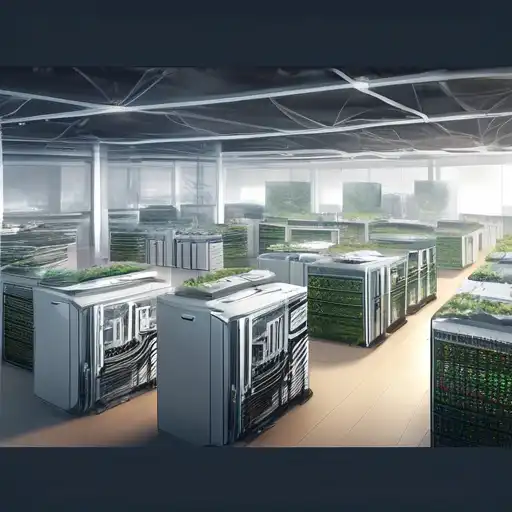Introduction to Sustainable Hardware in Tech
In today's rapidly evolving tech landscape, sustainability has become a cornerstone for innovation. Tech companies are increasingly turning towards sustainable hardware solutions to reduce environmental impact while maintaining high performance. This article explores the latest in eco-friendly hardware innovations that are setting new standards for the industry.
Why Sustainable Hardware Matters
The tech industry is notorious for its significant environmental footprint, from energy consumption to electronic waste. Sustainable hardware solutions offer a path to mitigate these impacts, providing benefits not only to the planet but also to businesses through cost savings and enhanced brand reputation.
Key Sustainable Hardware Innovations
Several groundbreaking innovations are leading the way in sustainable hardware. These include:
- Energy-efficient processors: Designed to deliver maximum performance with minimal power consumption.
- Recyclable materials: Use of biodegradable or recyclable components in hardware production.
- Modular designs: Allow for easy upgrades and repairs, extending the lifespan of devices.
- Solar-powered devices: Harnessing renewable energy to power tech gadgets and infrastructure.
Implementing Sustainable Solutions in Your Business
Adopting sustainable hardware is not just about purchasing eco-friendly products; it's about integrating sustainability into your business model. Here are some steps to get started:
- Assess your current hardware's environmental impact.
- Research and invest in sustainable alternatives that meet your needs.
- Educate your team on the importance of sustainability in tech.
- Monitor and report on your sustainability efforts to track progress.
Case Studies: Success Stories in Sustainable Hardware
Many tech giants and startups alike have successfully implemented sustainable hardware solutions. For example, companies like Company A have reduced their carbon footprint by switching to energy-efficient data centers, while Company B has pioneered the use of recyclable materials in their product lines.
Challenges and Future Directions
Despite the progress, challenges remain in widespread adoption of sustainable hardware, including higher upfront costs and limited availability. However, as technology advances and demand grows, these obstacles are expected to diminish, paving the way for a more sustainable future in tech.
Conclusion
Sustainable hardware solutions represent a critical step forward for the tech industry. By embracing these innovations, companies can play a pivotal role in protecting the environment while also achieving business success. The journey towards sustainability is a collective effort, and every step counts.
